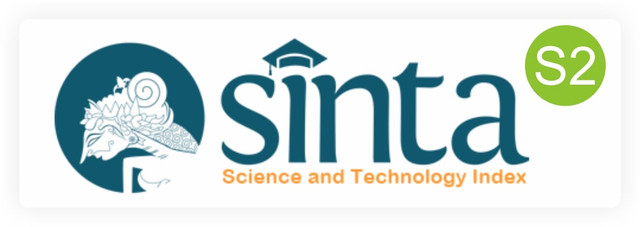The validation of patient knowledge questionnaire for patients with diabetes mellitus and hyperlipidemia
DOI:
https://doi.org/10.12928/pharmaciana.v8i2.7508Keywords:
Keywords, DM-Hyperlipidemia, Knowledge, Validation, ReliabilityAbstract
Prevalence of Diabetes Mellitus (DM) with Hyperlipidemia increased in Indonesia, where both diseases have a risk of complications towards cardiovascular disease. DM patients with hyperlipidemia require proper management to control blood sugar, total cholesterol and LDL cholesterol. Knowledge is one of the important factors in improving adherence therapy and quality of life of DM-hyperlipidemia patients, especially in controlling blood glucose level and total cholesterol levels. This study aims to develop a patient questionnaire of DM-hyperlipidemia.
The study used cross sectional method. Inclusion criteria were patients aged 18 – 70 years old, diagnosed DM-Hyperlipidemia, getting at least 1 oral antidiabetic and oral anti-cholesterol. The questionnaire item of knowledge was developed based on gudeline therapy and previous research reference. Expert validation is done on Doctor who had expert in DM and clinical psychologist. The pilot test was performed on 10 healthy patients and 10 patients of DM-hyperlipidemia who had eligible inclusion criteria. Validation of questionnaire was done on 30 patients of DM-Hyperlipidemia who undergoing therapy at outpatient clinic of PKU Muhammadiyah Hospital Yogyakarta. Data collection was done by interviewing questionnaires in patients. Analysis of data using SPSS with product moment validation test and cronbach alpha to see the reliability of questionnaire.
Validation results show there are some invalid items that are in questions 9, 11, 12, 15, 16 and 17, the range of questions about knowledge about hyperlipidemia, medication and general health. Re-validation without invalid item was done and obtained value r> 0.3, with value of Cronbach alpha 0,715.
The DM-Hyperlipidemia patient questionnaire was valid and reliable to measure the level of knowledge of DM patients with Dysipidemia.
Â
Â
References
Kementrian Kesehatan RI. 2013. Jumlah Penderita Diabetes Indonesia Rangking ke-4 di Dunia. Jakarta: Kemenkes RI.
PERKENI.2015.Panduan Pengelolaan Dislipidemia.Jakarta:PERKENI
Paulina SM, Lai, et al. Validation of the diabetes, hypertension and hyperlipidemia (DHL) knowledge instrument in Malaysia. BMC Medical Research Methodology.2012. 12;18
Mary Lynn McPherson, et al. Association between diabetes patients’ knowledge about medications and their blood glucose control. Research in Social and Administrative Pharmacy 4 (2008) 37–45
Amirul Islam, Fakir, et al. Knowledge, Attitudes and Practice of Diabetes in Rural Bangladesh: The Bangladesh Population Based Diabetes and Eye Study (BPDES). Plos One: October 2014. Volume 9,Issue 10
Stallwood L. Relationship between caregiver knowledge and socioeconomic factors on glycemic outcomes of young children with diabetes. J Spec Pediatr Nurs 2006;11:158–165.
Norris SL, EngelbauMM,Narayan KMV. Effectiveness of self-management training in type 2 diabetes. Diabetes Care 2001;24:561–587.
Notoatmodjo, S., 2010, Promosi Kesehatan dan Perilaku Kesehatan, Rineka Cipta,
12. Notoatmodjo, S., 2012, Promosi Kesehatan dan Perilaku Kesehatan, Rineka Cipta, Jakarta, hal 137-147.
Downloads
Published
Issue
Section
License
Authors who publish with Pharmaciana agree to the following terms:
- Authors retain copyright and grant the journal the right of first publication with the work simultaneously licensed under a Creative Commons Attribution License (CC BY-SA 4.0) that allows others to share the work with an acknowledgment of the work's authorship and initial publication in this journal.
- Authors are able to enter into separate, additional contractual arrangements for the non-exclusive distribution of the journal's published version of the work (e.g., post it to an institutional repository or publish it in a book), with an acknowledgment of its initial publication in this journal.
- Authors are permitted and encouraged to post their work online (e.g., in institutional repositories or on their website) prior to and during the submission process, as it can lead to productive exchanges, as well as earlier and greater citation of published work.


1.png)











